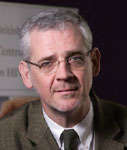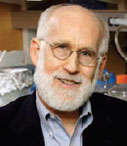NIDA announced the first three recipients of its new Avant-Garde Award, which supports groundbreaking research to prevent and treat HIV/AIDS in drug abusers. The awardees will each receive $500,000 per year for 5 years.

Julio Montaner, M.D., head of the Division of AIDS at the University of British Columbia and director of the British Columbia Centre for Excellence in HIV/AIDS in Vancouver, will study HIV/AIDS treatment and prevention outcomes in injection drug users (IDUs). Current evidence indirectly suggests that expanded use of the therapy known as highly active antiretroviral treatment (HAART) will not only decrease sickness, hospitalization, and death among IDUs infected with HIV but also decrease the rate of new HIV infections. Dr. Montaner's project will provide HAART to IDUs in the Vancouver neighborhood considered British Columbia's epicenter of both HIV and drug use. The work will test innovative strategies for monitoring HIV in this hard-to-reach population, evaluate novel approaches to providing care and enhancing adherence to the treatment, and track the sources of new infections using social and sexual networks and HIV gene sequencing. Dr. Montaner says that unless society finds a way to deal with HIV among IDUs in a compassionate and supportive fashion, we will not succeed in controlling the broader HIV epidemic.

Ileana Cristea, Ph.D., an assistant professor in the Department of Molecular Biology at Princeton University, Princeton, New Jersey, will investigate how HIV usurps a person's cellular machinery for its own purposes and how the human cell responds. She recently developed a technique that visualizes proteins in live cells and identifies their interactions. In her project, her research team will use the technique to characterize the interactions of 11 enzymes that play a role in a process called chromatin remodeling, which HIV uses to conceal itself within host cells. The team also plans to search for mechanisms that regulate the fate of a cell after HIV infection. Dr. Cristea says that the work may provide new therapies for purging latent viruses from their cellular reservoirs.

Jerome Groopman, M.D., professor of medicine at Harvard Medical School and chief of the Division of Experimental Medicine at the Beth Israel Deaconess Medical Center in Boston, Massachusetts, plans to develop agents to block the spread of HIV within the body. To inhibit HIV passage between cells and through lymphatic channels, Dr. Groopman and his team will exploit a newly discovered ligand-receptor system. The project's goal is to contain the virus at the site of the initial infection, where it can be targeted with a combination of antiviral treatments. Dr. Groopman says that the work may lead to a paradigm shift in HIV therapy.
